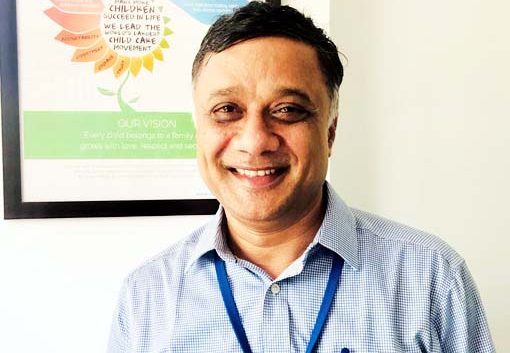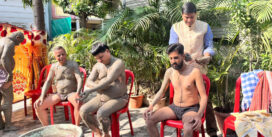- Over 50gw of solar installations in india are protected by socomec pv disconnect switches, driving sustainable growth
- Draft Karnataka Space Tech policy launched at Bengaluru Tech Summit
- एसर ने अहमदाबाद में अपने पहले मेगा स्टोर एसर प्लाज़ा की शुरूआत की
- Acer Opens Its First Mega Store, Acer Plaza, in Ahmedabad
- Few blockbusters in the last four or five years have been the worst films: Filmmaker R. Balki
True Freedom for India Comes When Every Child Gets Quality Parental And Alternative Care

By Mr Sudarshan Suchi, National Director of SOS Children’s Villages
India is celebrating 74th Independence Day this year. We have made great strides with nearly 50% increase in Human Development Index from the 90s to 2018. Today we are considered one of the Asian Tigers when it comes to economy.
We have made a footfall on Mars, launched boldest tax reform, created several Indian multinational companies and likewise in several other domains we are shining on the global canvass. At this proud moment, we like to reflect on requisites for keeping up the momentum.
One of these is investing into our children who are our future. Unfortunately, some figures continue to be a worry for our nation. The child mortality is high (1.34 million under 5 deaths annually). The instances of malnourishment in Indian children are almost five times higher than in China, and twice those in Sub-Saharan Africa.
As per the National Family Health Survey 2015-16, about 5% of children below the age of 18 years are orphans in India. The phenomenon of children with no one to care for, has serious implications for progressing ahead, for, dismal quality of human resources hinder in boosting socio-economic progress of a nation.
Children growing up in an orphanage, as typically operated, experience structural neglect. Though, the Juvenile Justice (JJ) Act, 2015, the Integrated Child Protection Scheme (ICPS) and Foster Care Guidelines, all ensure the provision of minimum standards, such as accommodation viz physical infrastructure, sanitation and hygiene and services including medical facilities, diet scale, clothing and bedding, daily routine, education, vocational training and rehabilitation and social reintegration.
But there are critical gaps in realizing these rights. The dismal quality of care is a result of an interplay of myriad challenges – lack of physical and human resources, sheer number of children, combined with inadequate capacities of child care functionaries.
However, one of the most important factors is the poor social-emotional interactions between the caregivers and children. It results in a number of troubling developmental outcomes ranging from poor physical growth to attachment problems and general behavioral and mental deficits.
One thing, if we all recall from our childhood is the safe and loving environment, which was largely created by our parents. To be more specific, it was owing to our mothers, who remains a sounding board in our lives till the end of time.
At SOS Children’s Villages of India, we strive to recreate this experience for children by ensuring they have a stable, trained caregiver (SOS Mother), at all times. SOS mother is an autonomous individual, who is invested in the holistic development of her children.
We rely on in-house Child Care Standards that are drawn on UN Guidelines of Alternative Care and on the principles of the United Nations for Child Rights Convention (UNCRC) to ensure personalized, individual quality care to each child, to afford them more stimulation, happy environment and support till they are settled as independent, contributing members of our society. Every year upto 300 young people are integrated into society, several of them have become leaders in their domains.
What this experience has taught us is that nurturing children requires a routine, belongingness and safety, besides all the basic amenities needed to support a human life. The experience of joyful childhood is created not through physical walls or tall structures, rules or laws but with love, care and dedication.
Owing to our six-decades experience in child care, SOS Children’s Villages of India works closely with the State and National Government in improving the outcomes in alternative care for 2 crore children in this country. For, we believe that, the true freedom will come when we all will come together in affording children a stimulating, joyful experience where they are cared for with love, safety and attachment with a dedicated caregiver. Quality parental and alternative care is the key in building a stronger nation.


